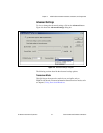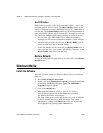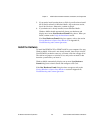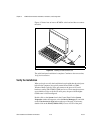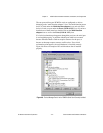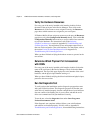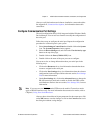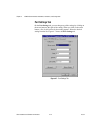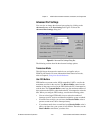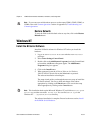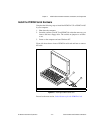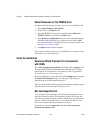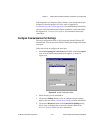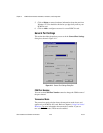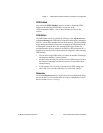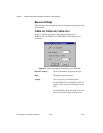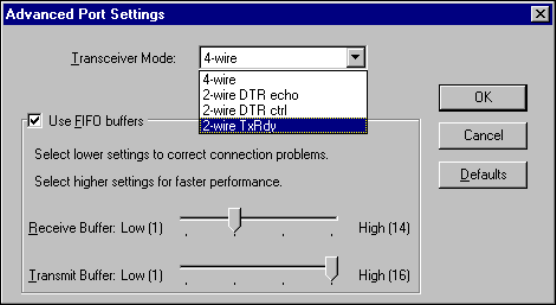
Chapter 4 PCMCIA Serial Hardware Installation, Verification, and Configuration
© National Instruments Corporation 4-15 Serial Hardware and Software for Windows
Advanced Port Settings
You can view or change the advanced port settings by clicking on the
Advanced buttononthePort Settings tab. Figure 4-8 shows the
Advanced Port Settings dialog box.
Figure 4-8.
Advanced Port Settings Dialog Box
The following sections describe the advanced settings options.
Transceiver Mode
This field shows the transceiver mode in use, and applies only to
PCMCIA-485 boards. For more information about transceiver modes,
refer to Chapter 6, Using Your Serial Hardware.
Use FIFO Buffers
FIFO buffers are present on the 16550-compatible UARTs—one for the
transmitter and one for the receiver. The Receive Buffer control sets the
number of characters received in the FIFO before the PC is interrupted to
read the data. The Transmit Buffer control sets the maximum number of
bytes written to the FIFO in a block when the PC is interrupted to write the
data. When you configure FIFO settings, consider the following points:
• You can select larger FIFO buffer sizes to reduce the number of
interrupts your PC receives and therefore minimize system overhead.
• If transfer rates are high, you can lower the Receive Buffer value to
prevent overrun errors due to interrupt latency.
• If your data transfer sizes are small and your Receive Buffer value is
above your data sizes, your system is less efficient. Therefore, set the
Receive Buffer value below your data sizes.



